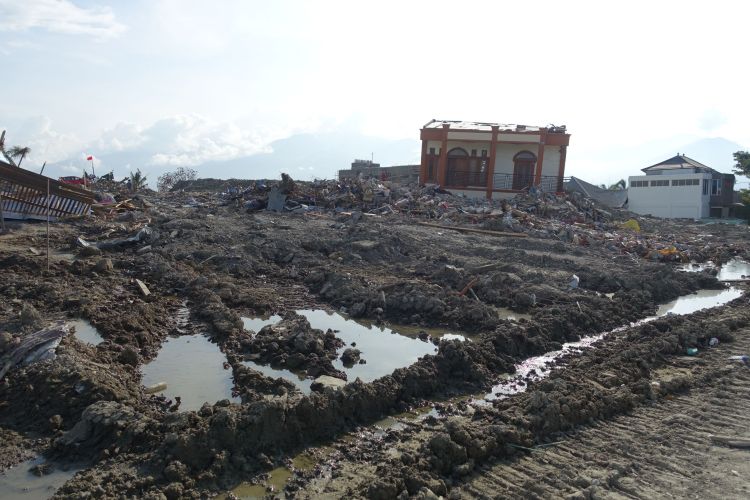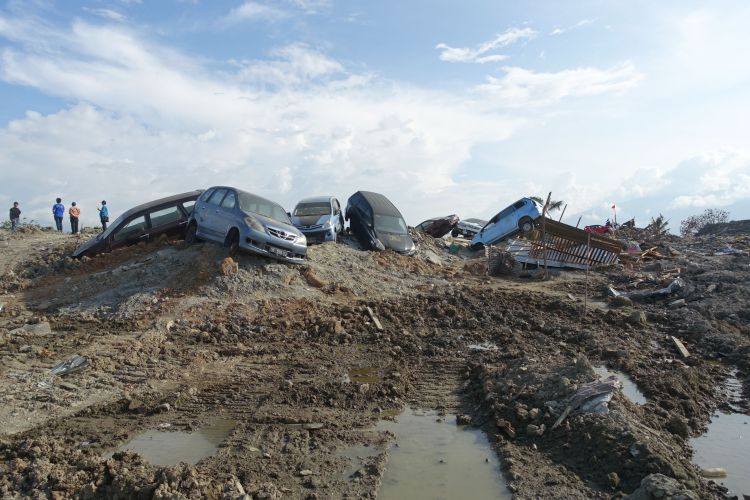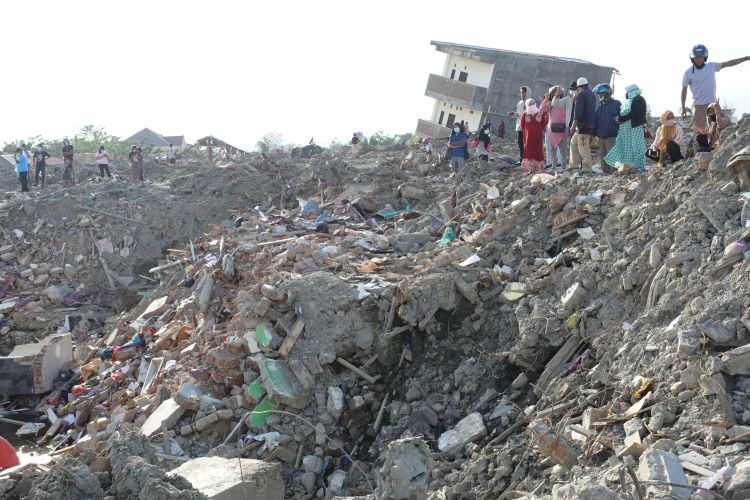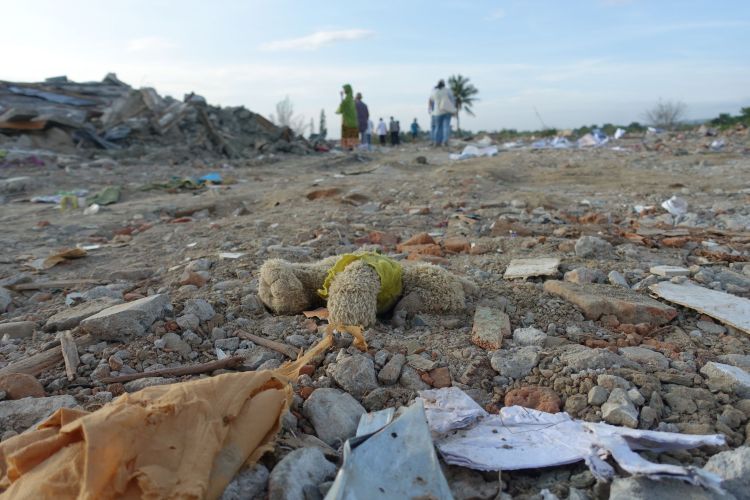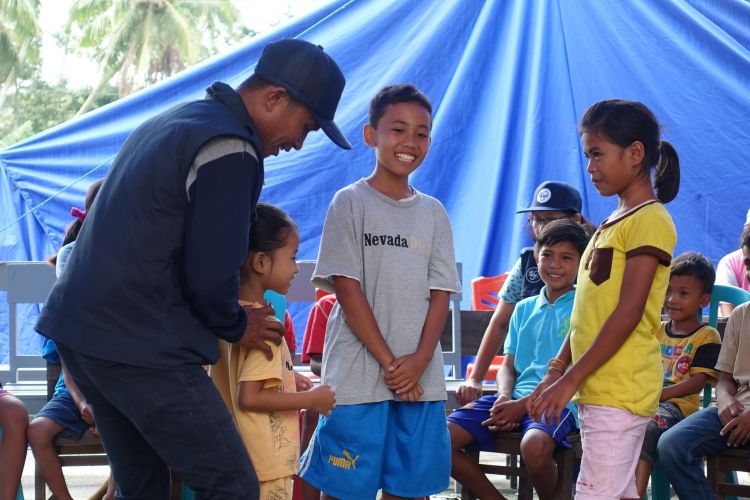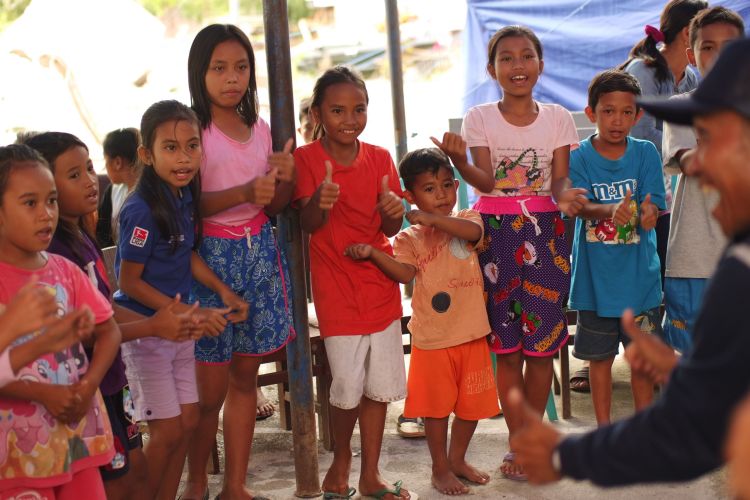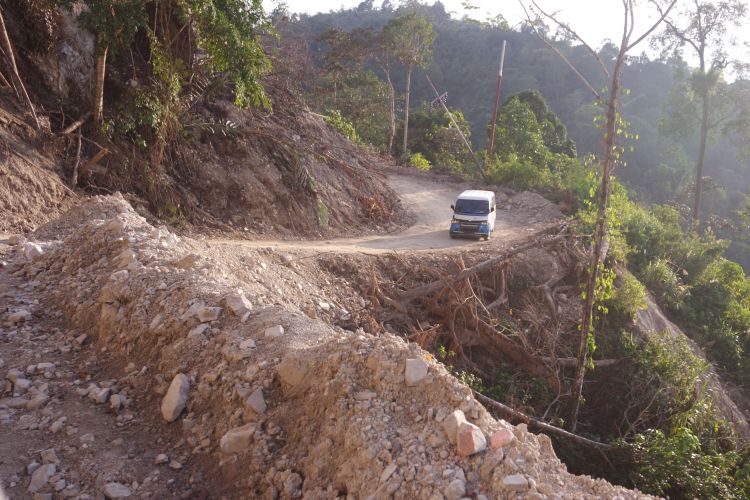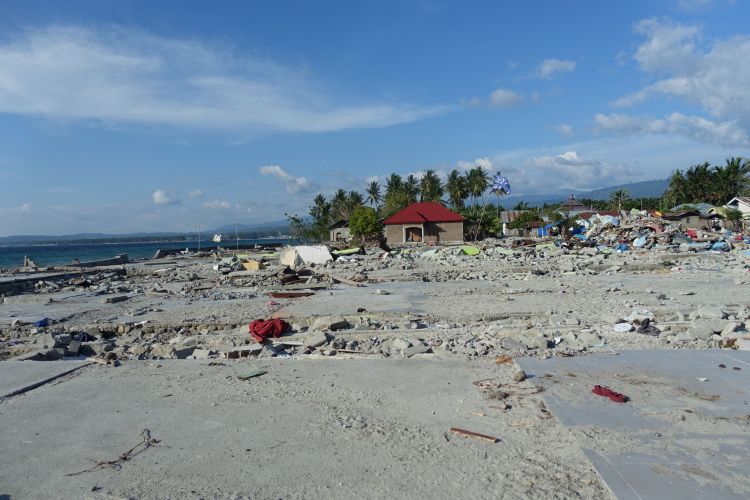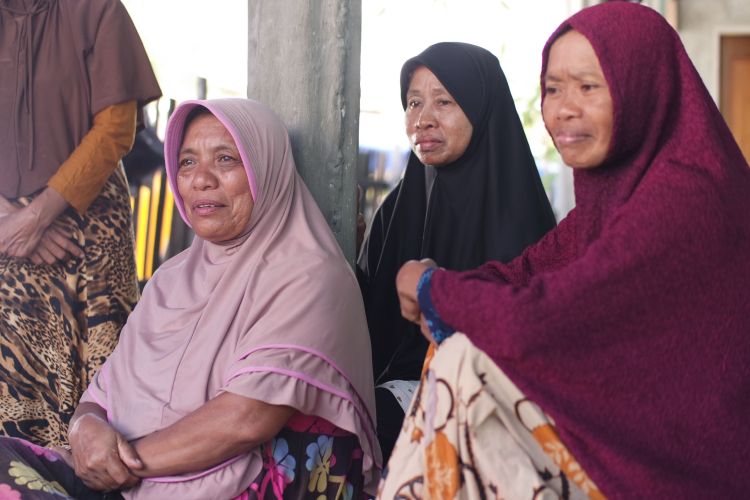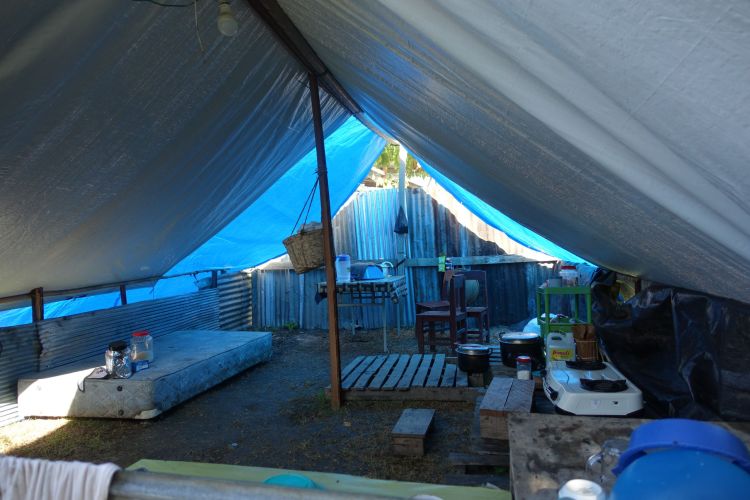Banner image: CEDAR’s Chief Executive Dr. Raymond Kwong passes a cooking kit to a representative of the village
It has been over two months since earthquake and tsunami hit central Sulawesi, Indonesia. In early November, CEDAR Fund’s Chief Executive Dr. Raymond Kwong and two staff visited the area. The team met and talked to the affected people, as well as monitored the relief efforts and discussed about further response to meet the needs of survivors with our local partner, PESAT.
(Available in Chinese Only)
“By the sea, there was the tsunami; in the mountains, there were earthquake and landslides; inland, there were earthquake and liquefaction,” Yanti, a colleague of PESAT, pointed out the extensive impact of the disaster. We have seen the widespread destruction of homes, roads, and infrastructures along the coastal area, in the rural villages, and in the inland communities. PESAT was not able to reach the mountainous villages to assess the needs of the affected until 4 weeks after the disaster. Tsunami waves swept away everything – homes and fishing boats – of the coastal families. As we walked through the liquefaction communities, we saw houses were either engulfed by the soil, or being carried away by the liquefied ground up to a kilometre away.
We met traumatised families and children who are still grieving the loss of loved ones and homes. Among them, we met church leaders that are working hard to take care of brothers and sisters physically and spiritually. Some leaders acted as representatives of their congregation to voice out their needs to relief agency, while some leaders tried their best to restore and strengthen the hearts of believers.
CEDAR and PESAT have distributed aid materials to different affected families, including rice, oil, salt, cooking utensils, and personal hygiene items. We have also distributed schoolbags to students who have resumed school. After the initial assessment and observation, we estimated that the need of restoring livelihoods, building temporary shelters, and children resuming schools are to be addressed in the next phase of work.
Please stand alongside these families and children in the long journey of rebuilding life to normalcy!
Prayer support
- Pray for the next phase of post-disaster work of the government and non-governmental organisation; may all parties have wisdom and good collaborations on the ground
- Pray for the displaced families who are living in tents; may the Lord provide them a good shelter as monsoon season hits
- Pray for families that have lost their livelihoods or breadwinners; may the merciful God make a way for them to generate income so that children are fed and can continue education
- Pray for every broken heart and traumatised spirit because of the disaster
donation method
(Please specify : Indonesia Earthquake and Tsunami Relief)
Cheque
Please make it payable to CEDAR FUND
Direct Deposit
HSBC: 004-600-385678-001
BEA: 015-185-68-00931-7SSA
BOC: 012-581-2-020114-7
DBS: 016-478-001364162
Faster Payment System
FPS ID: 3354016 or scan the below code in the online banking
After donation, please send a completed Donation Form, enclosing with cheque, bank-in slip or screenshot of successful payment along with your name, contact phone number and mailing address to us via mail, email or WhatsApp.
Address: CEDAR Fund, G.P.O. Box 3212, Hong Kong
Email: sharing@cedarfund.org
WhatsApp (for donation matters only): 5160 7549
- CEDAR is an approved charitable institution and trust of a public character under section 88 of the Inland Revenue Ordinance. Please visit Inland Revenue Department website for details.
- CEDAR Fund will issue a receipt for a donation of HK$100 or above for tax deduction. For a donation of less than HK$100, please get in touch with us to issue a receipt.
- Please DO NOT fax any donation information.
If the donation exceeds the above mentioned allocation of funds, the excess amount will be transferred to CEDAR’s ‘Emergency Relief and Disaster Preparedness Fund’. The fund will enable us to respond to immediate needs, and support disaster mitigation in poor nations always being hit by disasters to reduce the amount of devastation.


